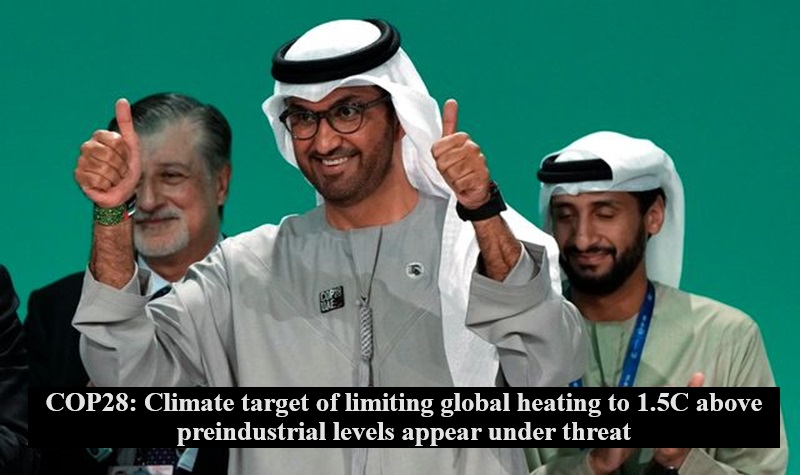
As leaders convened for the COP28 summit to address climate challenges, the ambitious goal of limiting global warming to 1.5°C above preindustrial levels, a triumph of the Paris Climate Agreement, faces threats. Originally, the target was set at 2°C, leaving small island nations and climate-vulnerable countries frustrated.
Eight years post-Paris, the climate crisis has intensified, with oil companies expanding production, reaping profits, and escalating emissions. Global temperatures, influenced by El Niño, reached unprecedented levels, causing devastating impacts on ecosystems, food supplies, and human mortality.
In the first 10 months of the year, global warming reached 1.4°C above preindustrial levels, raising concerns about an imminent breach of the 1.5°C limit. Climate experts are alarmed by the rapid approach of this ambitious Paris target, predicting a breach in the coming years.
If the 1.5°C target is breached, severe storms, flooding, and drought are expected to become more frequent and intense. Climate-vulnerable populations in countries with weaker healthcare systems and poor economies will bear the brunt. Catherine Nakalembe, head of NASA Harvest’s Africa program, projects 70 million more people in Africa facing acute food insecurity at 2°C compared to 1.5°C. Lower temperatures reduce the likelihood of severe drought in southern Africa by 30% at 1.5°C compared to 2°C, with maize and sorghum yields in West Africa potentially 40–50% lower at 2°C.
Half a degree less breathing space for non-human inhabitants may result in considerable losses, stressing water quality, pollination, and other components of the planetary life-support system. At 2°C, projections suggest 18% of insect species, 16% of plants, and 8% of vertebrates could lose half of their habitats, double the proportions at 1.5°C. Tropical rainforests, including the Amazon, may diminish rapidly, reaching a tipping point with a one-month longer dry season at 2°C and a three-fold increase in extreme heat, potentially transforming into a savannah.
A warming world also impacts marine ecosystems, causing oxygen depletion and acidification, thereby affecting fisheries upon which billions of people depend. The urgency to address climate change and limit global warming becomes increasingly apparent to avert these severe consequences.

Post Your Comments